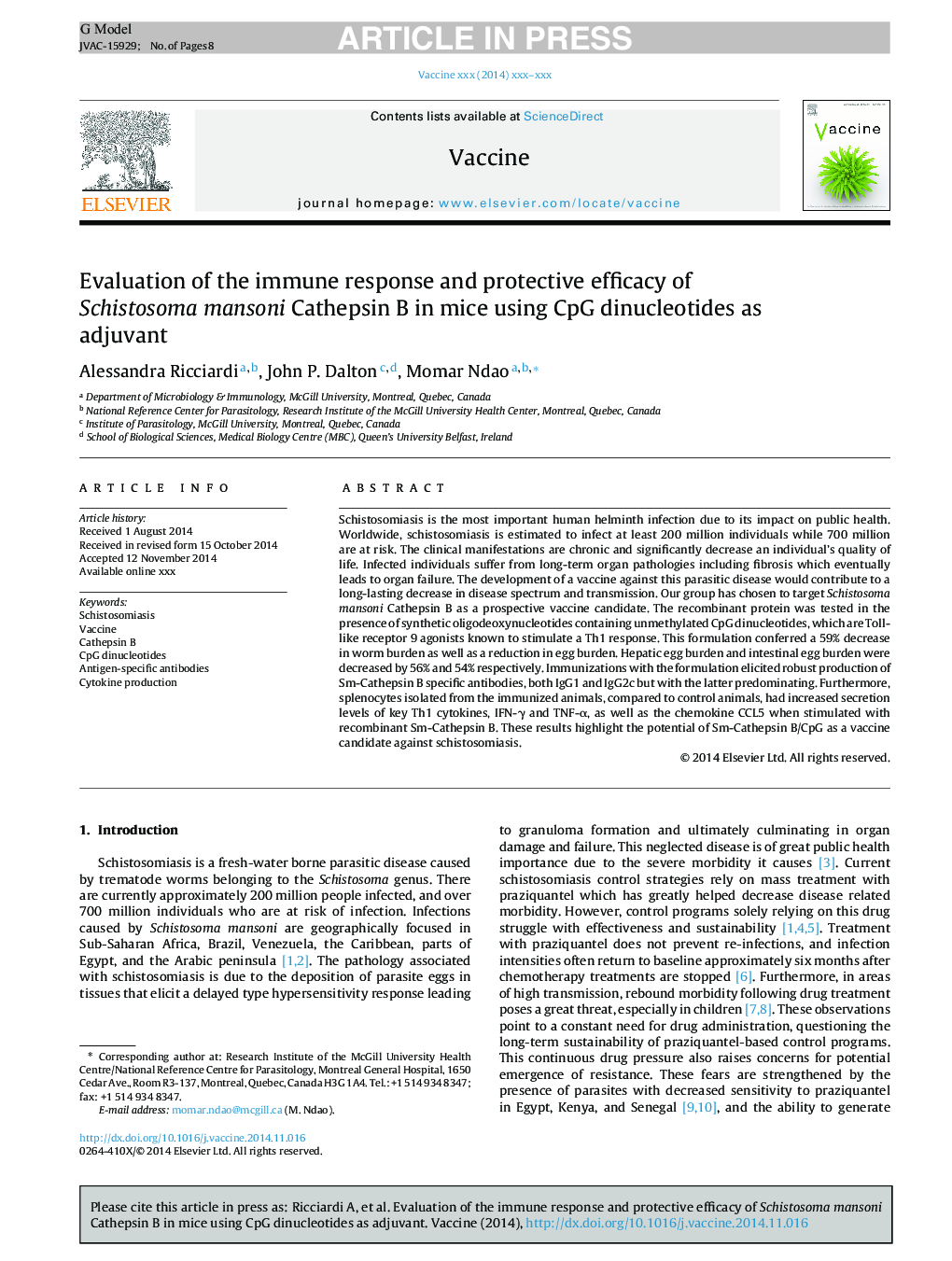| Article ID | Journal | Published Year | Pages | File Type |
|---|---|---|---|---|
| 10966124 | Vaccine | 2015 | 8 Pages |
Abstract
Schistosomiasis is the most important human helminth infection due to its impact on public health. Worldwide, schistosomiasis is estimated to infect at least 200 million individuals while 700 million are at risk. The clinical manifestations are chronic and significantly decrease an individual's quality of life. Infected individuals suffer from long-term organ pathologies including fibrosis which eventually leads to organ failure. The development of a vaccine against this parasitic disease would contribute to a long-lasting decrease in disease spectrum and transmission. Our group has chosen to target Schistosoma mansoni Cathepsin B as a prospective vaccine candidate. The recombinant protein was tested in the presence of synthetic oligodeoxynucleotides containing unmethylated CpG dinucleotides, which are Toll-like receptor 9 agonists known to stimulate a Th1 response. This formulation conferred a 59% decrease in worm burden as well as a reduction in egg burden. Hepatic egg burden and intestinal egg burden were decreased by 56% and 54% respectively. Immunizations with the formulation elicited robust production of Sm-Cathepsin B specific antibodies, both IgG1 and IgG2c but with the latter predominating. Furthermore, splenocytes isolated from the immunized animals, compared to control animals, had increased secretion levels of key Th1 cytokines, IFN-γ and TNF-α, as well as the chemokine CCL5 when stimulated with recombinant Sm-Cathepsin B. These results highlight the potential of Sm-Cathepsin B/CpG as a vaccine candidate against schistosomiasis.
Related Topics
Life Sciences
Immunology and Microbiology
Immunology
Authors
Alessandra Ricciardi, John P. Dalton, Momar Ndao,
